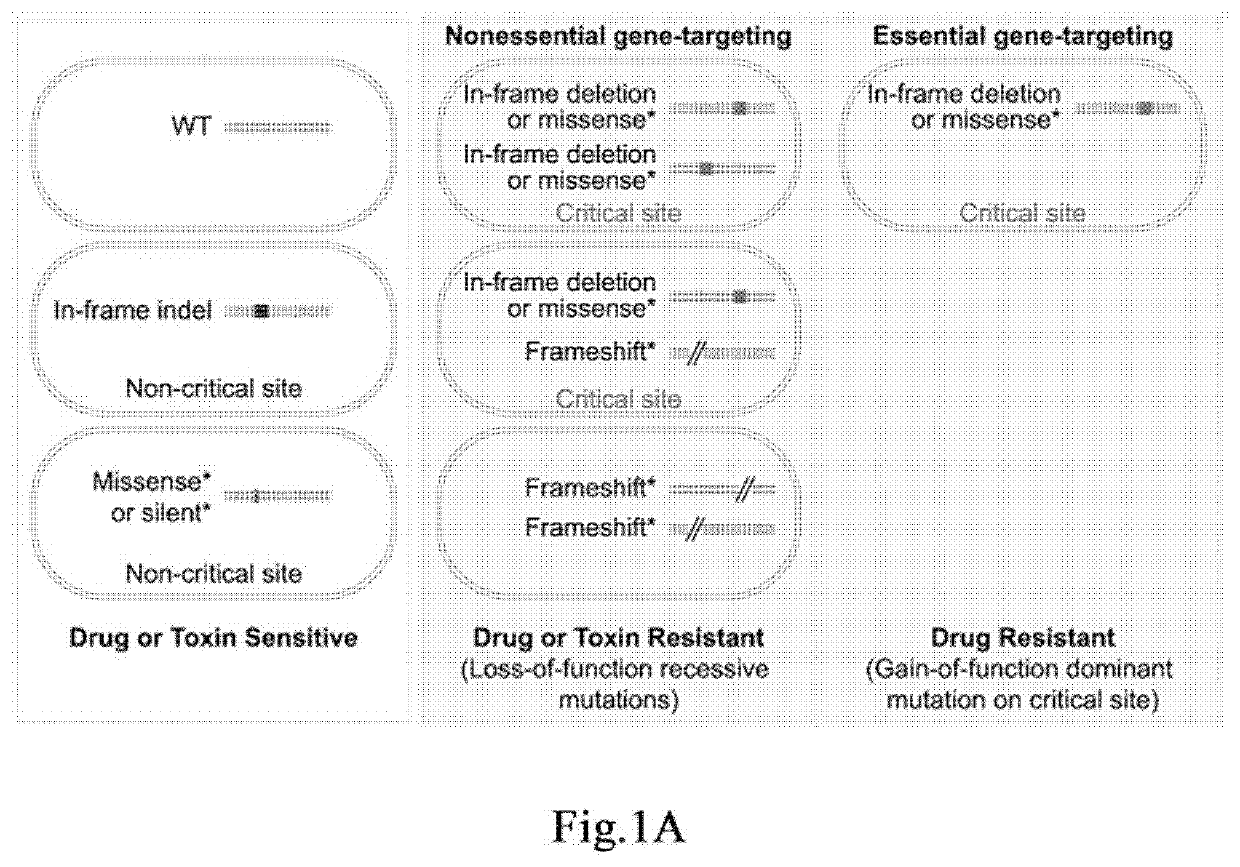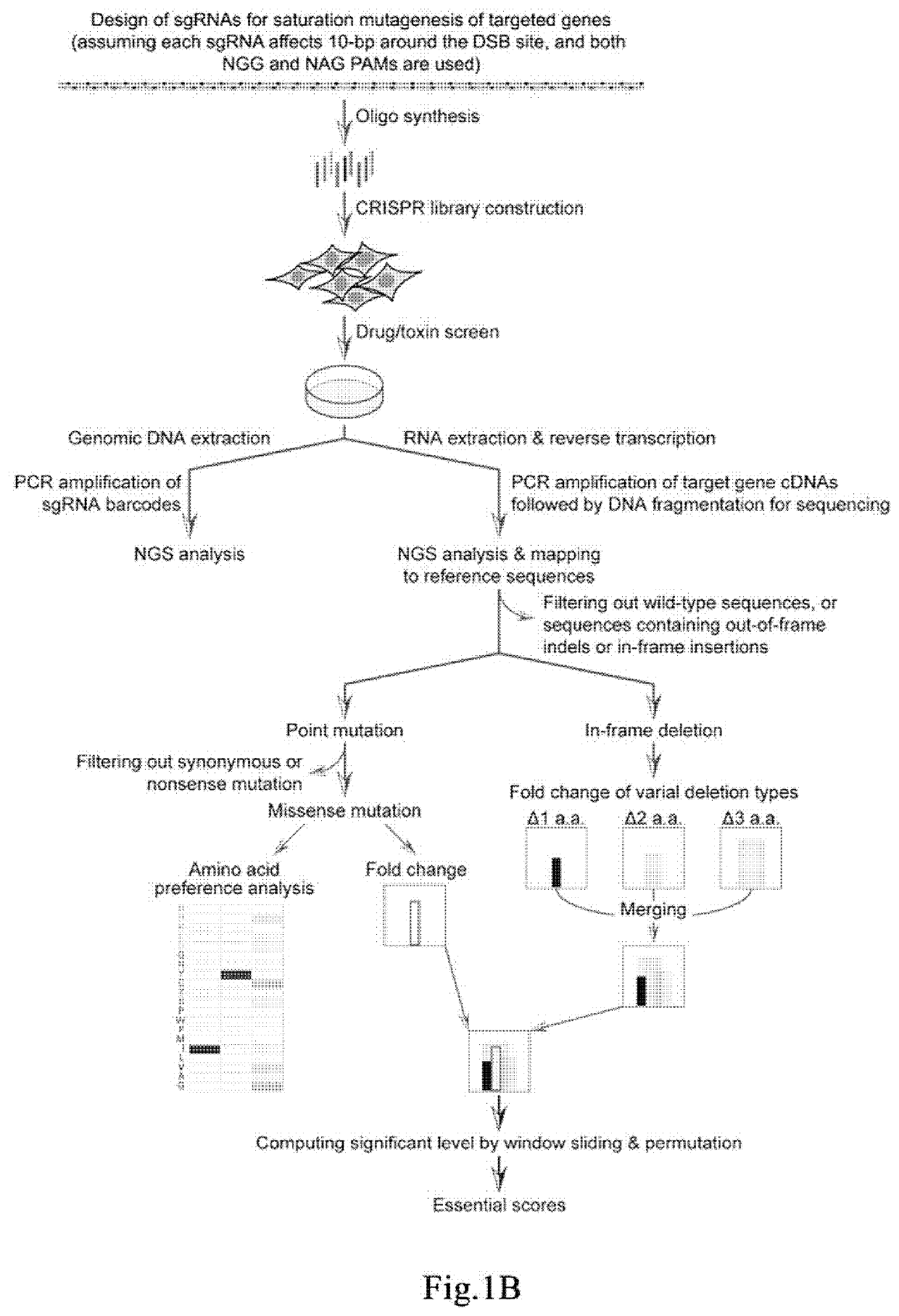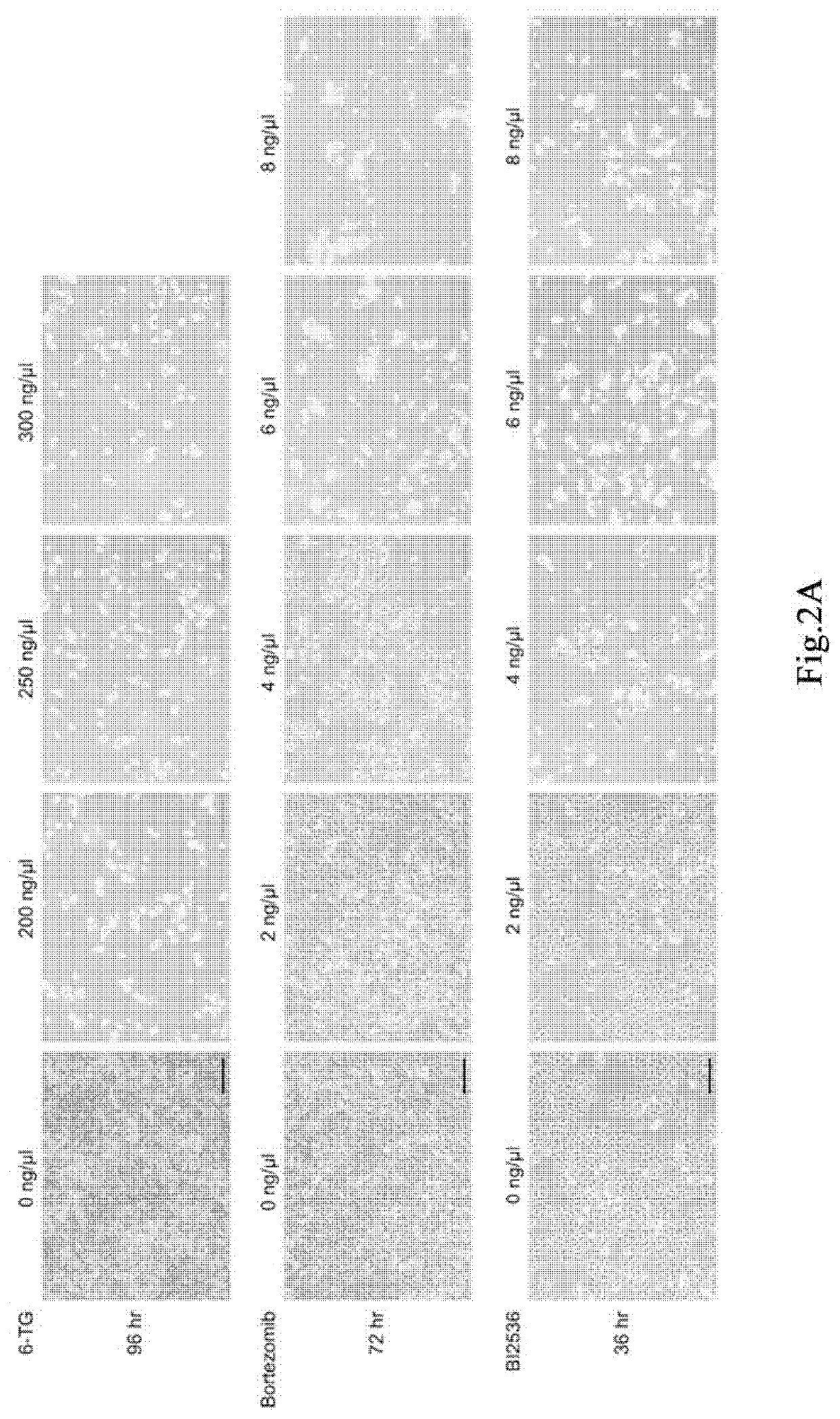Method for identifying functional elements
a functional element and functional technology, applied in the field of functional element identification, can solve the problems of limited base recognition resolution, low resolution, time-consuming and laborious techniques, etc., and achieve the effects of high resolution, rapid mechanistic study of protein function and drug resistance, and high resolution
- Summary
- Abstract
- Description
- Claims
- Application Information
AI Technical Summary
Benefits of technology
Problems solved by technology
Method used
Image
Examples
examples
Materials and Methods
Cells and Reagents
[0139]Stably Cas9-expressing HeLa cells and HEK293T cells were cultured in Dulbecco's modified Eagle's medium (DMEM, Corning) containing 10% fetal bovine serum (FBS, CellMax) under 5% CO2 at 37° C.
[0140]Plasmid Construction
[0141]The sgRNA vector (pLenti-sgRNA-GFP) was cloned by replacing the U6 promoter in pLL3.7 (Addgene) with the human U6 promoter, ccdB cassette and sgRNA scaffold. The Cas9 expression vector (pLenti-OC-IRES-BSD) has been previously reportedl. pcDNA-HBEGF was cloned by replacing the KRAB-dCas9 element of pHR-SFFVKRAB-dCas9-P2A-mCherry (Addgene) with the human HBEGF coding sequence and 3 ×FLAG. Vectors expressing cDNA of HBEGF with single amino acid deletions were constructed via PCR site-directed mutagenesis (PfuUltraII Fusion HS DNA Polymerase, STRATAGENE). The primers used to generate different deletion mutants for HBEGF are listed as follows.
(SEQ ID NO: 1)HBEGF-29-F 5′-GACCGGAAAGTCCGTTTGCAAGAGGCAG-3′(SEQ ID NO: 2)HBEGF-29-R...
PUM
| Property | Measurement | Unit |
|---|---|---|
| weight | aaaaa | aaaaa |
| weights | aaaaa | aaaaa |
| resistance | aaaaa | aaaaa |
Abstract
Description
Claims
Application Information
 Login to View More
Login to View More - R&D
- Intellectual Property
- Life Sciences
- Materials
- Tech Scout
- Unparalleled Data Quality
- Higher Quality Content
- 60% Fewer Hallucinations
Browse by: Latest US Patents, China's latest patents, Technical Efficacy Thesaurus, Application Domain, Technology Topic, Popular Technical Reports.
© 2025 PatSnap. All rights reserved.Legal|Privacy policy|Modern Slavery Act Transparency Statement|Sitemap|About US| Contact US: help@patsnap.com



